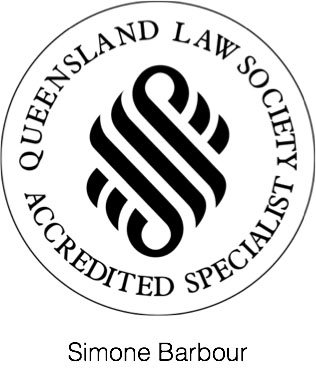
Negotiating a Final Property Settlement
The following are critical steps that are involved in negotiating a property settlement.
Step 1: Gathering information
- To determine the value of your assets and liabilities today
- To determine the value of your assets and liabilities at the time you commenced living together
- To determine the value of your assets and liabilities at the time of separation if you have been separated for some time or there has been a major change to your assets and liabilities since separation
- To assess the financial contributions that have been made and significant transactions that have taken place during the relationship such as those relating to the purchase of a home or investment
- To determine if there have been any major contributions from a windfall such as an inheritance or personal injuries payout
- To determine the earning capacity of each party
Step 2: Consider Contributions
Analysing the information provided to consider the contributions of each party including non-financial contributions such as those in the role of home maker, parent, time and effort spent to maintain or renovate a property or to support the business or studies undertaken by a party
Step 3: Financial Needs
Considering your financial needs for the future.
Step 4: Advising on your potential rights
This is the stage where we analyse all relevant material and advise you on the potential range of outcomes and discuss with you how best we can advance your case.
Step 5: Methods of negotiation
- Exchanging written proposals
- Engaging in round-table discussions
- Engaging in formal mediation
Step 6: Finalising an Agreement reached
If an Agreement is reached then there are two main options to finalise the terms:
- A Binding Financial Agreement (BFA) which is an out of Court document that is recognised by a Court and can be enforced by a Court. This document requires each party to receive independent legal advice. It enables parties to reach solutions that are not required to be approved by a Court and therefore gives greater flexibility about the terms that can be agreed.
- Applying to Court for Consent Orders. This involves the preparation of an Application to the Court that sets out your current financial position and the rationale for the settlement reached where the Court is asked to accept the settlement reached. The Court must be satisfied that the Orders proposed are just and equitable. If accepted the Court issues Consent Orders which can then be enforced.
Frequently Asked Questions
Do I Need to Formalise it?
Yes you do. This is the only way to properly finalise the terms of the settlement and prevent any further claim. There are other advantages if you are transferring real property as you can claim a stamp duty exemption on the transfer. If capital gains tax would be payable at the time of transfer there are also family law exemptions (referred to as rollover relief) so that payment is not required at the time of transfer.
However even if this exemption applies to the transfer of property, it is important to be aware that capital gains tax is still payable in the event the property is sold at a future date.
What If We Can't Agree?
The Court expects each party to have made all reasonable attempts to have settled the case before filing in Court, save for cases of genuine urgency.
This involves an exchange of at least one written offer and participation in mediation. These steps are called the Pre-Action Procedures.
There are some urgent circumstances where it is not possible to go through the Pre-Action Procedures. If you are concerned that an asset may be sold and the funds spent by the other party in a manner that may impact on your entitlements or if you need urgent maintenance and the other party will not provide it, then you may need to take urgent steps to file a Court Application. We can assist you to determine if an urgent Application to Court is required.
If you have explored your options and have no choice but to go to Court then you will need to prepare the following documents:
- An Application setting out the outcome you are seeking
- A Financial Statement setting out your current financial position, assets, liabilities, income and expenses
- An Affidavit (a document you attest to be the truth) setting out the relevant factors the Court needs to consider
You should take legal advice before commencing legal proceedings. These are important documents and a solicitor can help you ensure that all Court documents clearly set out what you are seeking and the grounds to support what you are seeking are covered by the facts set out in your Affidavit.
If you have received a Court Application filed by the other party then you will have to prepare Court material in response. This will involve:
- A Response setting out the outcome you are seeking
- A Financial Statement setting out your current financial position, assets, liabilities, income and expenses
- An Affidavit (a document you attest to be the truth) setting out the relevant factors the Court needs to consider
Once an Application has been filed you will be expected to attend a Court Date. Unless there are urgent issues that one party asks the Court to decide pending the final settlement, then your case will not be decided by the Judge on that first Court Date. Instead, the Judge will seek to understand the issues and how they can be resolved and will make Directions Orders to assist you and the other party to resolve matters or to be ready to move forward to Trial.
If you have not already participated in mediation, then a Court will usually require you to do so after the first Court Date. They may require property to be valued and documents to be exchanged to help in preparing for mediation and if necessary at the Trial.
There are different ways that each Judge determines when a case is ready for Trial. When the Judge is ready to allocate your case for Trial they will make Orders that each of you file further Affidavits of any evidence you want the Court to know.
At Trial the Judge then reads the evidence and each party is required to give evidence in the witness box so that what they have put in writing can be tested and the Judge can make findings about what they consider are relevant facts that support the Judgement they will issue. You can put forward evidence from other people if it is relevant and they must commit this evidence in writing and become formal witnesses. After a Trial the Judge is required to make a final decision.
This whole process from the start of an Application until a Trial can take anywhere from 12 to 24 months on average owing to various reasons but predominantly the need for more and more resources due to a backlog of cases awaiting trial.
However many cases will be settled before that time throughout the process.
As your lawyers, we always look to assist you to reach an early settlement and avoid the costly and protracted process of a Trial.


